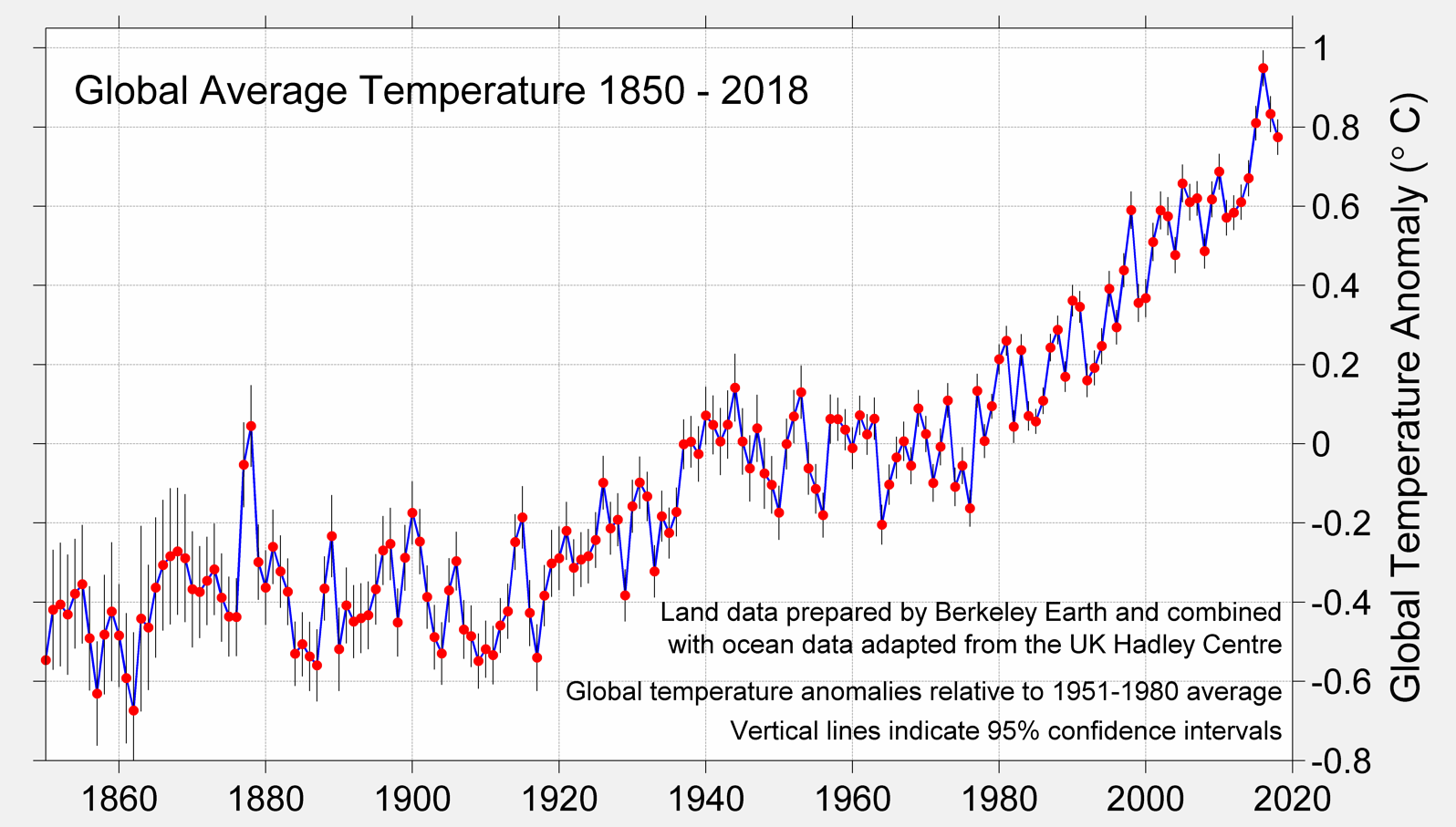There is no tech that can right now compete with $150 per barrel oil prices. None.
People have no idea how pervasive oil is. We use it for lots of shit you don't usually think about. And just in terms of using it for energy.. there exists not much out there with that kind of stored energy potential. Natural gas a little bit. But then you are dealing with the same problems.
Oil dependency is the real problem, not some ridiculous climate change fantasy. The goal of getting us no longer dependent upon a finite resource like that is a good goal. But it will never be achieved by insane democrats and environmentalists. You need lots of nuclear power plants and you probably would have to subsidize the vehicles. You'd still be dependent upon oil for all the other industrial applications, including plastics and food production.
This is not an easy problem and somebody focusing on it like it's a climate change problem is indicator numero uno that I am dealing with a fucking loon.
The Green Leap Forward
-
Ph64
- Posts: 2434
- Joined: Wed Feb 08, 2017 10:34 pm
Re: The Green Leap Forward
"People have no idea how pervasive oil is. We use it for lots of shit you don't usually think about."
And yes, climate change people are focusing on one small aspect of what is a hugely complex issue. Think of all the plastic items in your life - from comb, toothbrush, etc, to gaskets, plastic pipe, your cars dash, hoses, tires, etc... Parts of your phone, computer, A/C... It's pervasive, and if you get rid of it (lol) in the next 10 years, all those things will go away too.
Sure, go ride your bicycle instead of driving... But where are those bike tires from? Oil.
Or, ok, walk... But what are the soles of your shoes made from? Oil.
Many of your clothes are probably sewn with polyester thread. Yup, oil.
Getting a headache? Take an aspirin.. Hey it's in a bottle made from... Oil.
That's right, get rid of oil in 10 years and party to celebrate, like it's 1800... Because it will be soon enough.
Now just ask yourself, how much of that are *you* willing to give up to get off oil in the next decade?Oil pervades our civilization; it is all around you. The shell for your computer
is made from it. Your food comes wrapped in it. You brush your hair and teeth
with it. There's probably some in your shampoo, and most certainly its container.
Your children's toys are made from it. You take your trash out in it. It makes your
clothes soft in the dryer. As you change the channels with the TV remote you hold
it in your hands. Some of your furniture is probably made with it. It is everywhere
inside your car. It is used in both the asphalt you drive on and the tires that meet
the road. It probably covers the windows in your home. When you have surgery,
the anesthesiologist slides it down your esophagus. Your prescription medicine is
contained in it. Your bartender sprays the mixer for your drink through it. Oh yes,
and the healthy water you carry around with you comes packaged in it.
Be careful. If you decide that you want to throw this book out, your trashcan
is probably made from it. And if you want to call and tell me what a scaremonger
I am, you will be holding it in your hands as you dial. And if you wear corrective
lenses, you will probably be looking through it as you write down a number with
a pen that is made from it. Plastic is a petroleum product, and its price is every
bit as sensitive to supply shortages as gasoline. Oil companies do not charge a sig-
nificantly different price for oil they sell to a plastics company than they charge a
gas station owner. If the wellhead price goes up, then every downstream use is
affected.
If you live in the United States and the power generating station that serves
your community was built within the last 25 years, natural gas is probably pro-
viding you with the electricity that powers the bulb illuminating this book.
According to figures supplied by the US government, some 90 percent of all new
electrical generating stations will be gas powered. Vice President Cheney's "energy
task force," the National Energy Policy Development Group (NEPDG), stated in
summer 2001 that "to meet projected demand over the next two decades America
must have in place between 1,300 and 1,900 new electric plants. Much of this new
generation will be fueled by natural gas."
Oil is also critical for our food supply. Quantitatively speaking, modern food
production consumes ten calories of energy for every calorie contained in the
food. When the farmer (or more likely the "agribusiness employee") goes out to
plant seeds, she drives a vehicle powered by oil. After planting she sprays the crop
with fertilizers made from ammonia, which comes from natural gas. Then she
sprays them several times with pesticides made from oil. She irrigates the crops
with water that most likely has also been pumped by electricity generated by coal,
oil, or gas. Oil powers the harvest, transportation to processing plant, processing,
refrigeration, and transport to the grocery store (to which you, the consumer, drive
an oil-powered vehicle) .
You may pay for it with a piece of oil that you carry around in your wallet.
Then you take it home, cook it by means of either electricity or natural gas, and
eat it on a plate that may have been made from oil, after which you wash the plate
with a synthetic sponge that is also made of oil.
Consider this: out of six and a half billion people, there are about four billion
who don't have, and who want, all of the things I have just described. The current
world economy is inherently committed to endless growth, and while physically
impossible, this illusion is to be chased after by driving the poor countries into a
globalized market for cheap goods. Haiti, for instance, has had its domestic rice
farming ruined by American export dumping. When the Haitian farmers could no
longer underbid the American rice in Haitian markets, they moved off the land
and became urban unemployed. Then the Americans raised rice prices to crippling
levels. So Haiti is a captive market, but it's a market nonetheless. Similar develop-
ing countries are slowly acquiring more purchasing power and the industrialized
world is gaining a foothold in their domestic economies by targeting them for
cheap exports. One way or another, the have-nots must become consumers.
Food
How important are hydrocarbons to food production? One recognized oil expert
puts it this way: "If the fertilizers, partial irrigation, and pesticides were withdrawn,
corn yields, for example, would drop from 130 bushels per acre to about 30
bushels." That's bad news in more ways than you can think. The same applies in
varying degrees to any crop: wheat, alfalfa, lettuce, celery, onions, tomatoes; any-
thing that commercial agriculture produces. Oil and gas are irreplaceable if the
world is to continue pumping out enough food to feed 6.5 billion people. And that
says nothing about the additional 2.5 billion that are projected to be here before the
middle of this century. Organic farming or permaculture is responsible and respect-
ful of nature and may ultimately be nearly as productive as hydrocarbon-based
agriculture. But the infrastructure is not in place to implement it. You could ask
several billion people to stop eating for a year or two while we switch over and work
out the bugs. Do you want to volunteer? Would you volunteer your children?
So what about all the beef cattle, pigs, and chickens that feed on grain and corn?
Would you be prepared to pay $50 for a Big Mac if there were severe grain shortages?
How about a $25 chicken breast? That would be a quality problem for an American,
as opposed to someone in Africa or Asia who lived off of crops and food products sold
by globalized agriculture in case there was nothing locally grown. You have always
been told that these people just weren't as productive as we are. It's not true; they don't
have the oil and the natural gas that we do. The United States contains 5 percent
of the world's population and currently consumes 25 percent of the world's energy.
Growth
Oil also powers more than 600 million vehicles worldwide. Would you pay for a
$50,000 car and pay $5 a gallon for gas? $10 per gallon? Could you? In the current
financial paradigm, the stability of the world's economy depends upon growing rev-
enues through the sale of more and more vehicles and other products that are useless
without hydrocarbons. The revenues generated by current customers in developed
countries won't be enough to sustain future growth, so cars and computers and air
conditioners are beginning to flow into the new markets of China, Asia, and Africa.
Those populations don't have these energy-guzzling machines (nor the myriad petro-
leum-derived plastic consumer goods enjoyed in the relatively high-wage countries),
but they quite clearly desire them — especially the younger generation, whose pur-
chasing power is growing at the fastest rate. As their economies grow more robust,
wages rise and the consumers' desire becomes actual economic demand.
And yes, climate change people are focusing on one small aspect of what is a hugely complex issue. Think of all the plastic items in your life - from comb, toothbrush, etc, to gaskets, plastic pipe, your cars dash, hoses, tires, etc... Parts of your phone, computer, A/C... It's pervasive, and if you get rid of it (lol) in the next 10 years, all those things will go away too.
Sure, go ride your bicycle instead of driving... But where are those bike tires from? Oil.
Or, ok, walk... But what are the soles of your shoes made from? Oil.
Many of your clothes are probably sewn with polyester thread. Yup, oil.
Getting a headache? Take an aspirin.. Hey it's in a bottle made from... Oil.
That's right, get rid of oil in 10 years and party to celebrate, like it's 1800... Because it will be soon enough.
-
SuburbanFarmer

- Posts: 25450
- Joined: Wed Nov 30, 2016 6:50 am
- Location: Ohio
Re: The Green Leap Forward
There’s a pretty significant difference between burning a billion barrels of oil, and making consumer goods from a tiny fraction of it... but an excellent red herring nonetheless.
-
Ph64
- Posts: 2434
- Joined: Wed Feb 08, 2017 10:34 pm
Re: The Green Leap Forward
True, except that the hydrocarbons used to make the plastic consumer items are a byproduct of the refining process. A barrel of oil is (iirc) 42gallons, out of which something like 60% is defined to gasoline, 25% to diesel, and the remaining 15% (don't quote me on those numbers, it's been a long time since I saw them somewhere) is used for plastcs, rubber, etc. You don't get one without the other. Shale oil is extremely "light", very few refineries in the US can handle it unless it's mixed with heavier crude (such as tar sands oil) (this is why they pushed to allow its export, FYI), and it won't produce as many byproducts for plastic (or diesel). It's cost $billions to change our refineries to handle it in its pure form - which makes little financial sense since the wells deplete to almost nothing in 3 years. Shale has not, and will never, make the US "energy independant". Not will it make us "plastic independant".SuburbanFarmer wrote: Mon Feb 25, 2019 10:27 pm There’s a pretty significant difference between burning a billion barrels of oil, and making consumer goods from a tiny fraction of it... but an excellent red herring nonetheless.
You may claim it's a "red herring", but if you really researched the oil business, refining, etc, you'd discover its not as simple as you might think, there's a lot of interconnectedness between fuels and plastics. There was actually worry after the 2008 GFC when consumer gasoline use fell, that diesel would become a problem because both are refined from the same barrel of oil. r
There are alternatives - you can make oil for plastics from corn... Of course without oil & natgas you won't have tractors/harvesters and fertilizers, so you'll have less corn. And of course we export a lot of corn/soybeans to other countries... How many people are you willing to starve around the globe to get off oil? (Sally Struthers whiny voice) "Think of all the starving people in Africa..."
-
C-Mag

- Posts: 28389
- Joined: Tue Nov 29, 2016 10:48 pm
Re: The Green Leap Forward
You should probably just end it Brewbro. Afterall, we've had 20 hot years.brewster wrote: Mon Feb 25, 2019 9:03 pmForget arguing about models. The recorded data indicates we're already fucked, probably beyond repair.
The five warmest years in our recorded history have been 2014, 2015, 2016, 2017 and 2018 (not in that order). The ten hottest years have occurred since 1998.
https://rapidclimatechange.org/fun-with ... tatistics/
But maybe, just maybe, humans recorded hot, dry periods

the extreme heat in Europe this year is part of a cycle. The swings from extreme heat to extreme cold are also not unheard of. Another piece of historical evidence they ignore is known as the Hunger Stones. Pictured here is a Hunger Stone from 1616 which has been exposed by the low level of water in the Elbe River..........................The various Hunger Stones record droughts that resulted in famine and soaring prices for food. The droughts that have been recorded on the stones date to 1417, 1616, 1707, 1746, 1790, 1800, 1811, 1830, 1842, 1868, 1892, and 1893, which covers a period of 476 years.
https://www.armstrongeconomics.com/inte ... -appeared/
Is it possible that 1417 or other years were far hotter than 2015 ?
PLATA O PLOMO

Don't fear authority, Fear Obedience

Don't fear authority, Fear Obedience
-
Ph64
- Posts: 2434
- Joined: Wed Feb 08, 2017 10:34 pm
Re: The Green Leap Forward
We will get off oil eventually regardless. It's a finite resource.
As one 30+ year oil industry experts said, shale oil (or more accurately it's "tight oil") is the oil industries "retirement plan". Drill 10s of thousands of wells that deplete in 3 years after which you have to drill more and more... The "red queen" running faster and faster just to stand still. We knew how to frack wells 80 years ago, we had horizontal drilling 40 years ago... Nobody went for tight oil because it wasn't cost effective. We did what came naturally, we went for the cheap easy-to-get low-hanging fruit first. We've picked most of the low-hanging fruit now, the days of poking a hole in the ground on dry land and sucking 40 years of oil out are gone... Now we're doing fracking for short-term gain, having to drill in 5000ft of water, etc. $150 oil will come eventually, all on its own.
(I spent years reading on "peak oil". It's real and logical. Tight oil granted us a short reprieve, but overall... Mexico is in decline, Russia is in decline, Saudi is probably in decline (they're very secretive about numbers, but they're pumping more and more seawater in to get the oil out)...)
If you look at global oil demand it's like 93mbpd (million barrels per day), that means the world uses a billion barrels every 11-12 days. It's big news to read "discovery of potentially 30 billion barrels off the coast of Brazil" or something. It's rare. 30 billion barrels at a billion every 12 days... That's one year of global demand, if you could pump it that fast. I haven't seen one of those stories in years. We're discovering (last number I saw) one barrel of oil for every 6 we consume, for the past decade at least (I think it was one for every four we consumed in the mid 90s)... Ask yourself how long we can keep that up?
And here's the rub, our financial system is based on infinite growth... Investors want to see "growth" every quarter in a company, or their stock takes a hit. We're keeping up with oil demand today, but what happens when demand is 93mbpd and we can only produce 90? 85? Prices rise, costs rise, profits fall... It'll be one doozy of a financial crisis. And it's coming. Might be 10 years, maybe 20, but it's coming.
...And it takes 20-30 years to completely change an energy infrastructure. Even nuclear, if we started building today, it'd be decades to build enough. And $trillions we won't have in a collapsing economy.
As Dick Cheny said in like 2001, "the American way of life is non-negotiable". Unfortunately mother nature doesn't negotiate either, and she will win. Strap in, it'll be a rough ride. And be prepared for more resource wars.
As one 30+ year oil industry experts said, shale oil (or more accurately it's "tight oil") is the oil industries "retirement plan". Drill 10s of thousands of wells that deplete in 3 years after which you have to drill more and more... The "red queen" running faster and faster just to stand still. We knew how to frack wells 80 years ago, we had horizontal drilling 40 years ago... Nobody went for tight oil because it wasn't cost effective. We did what came naturally, we went for the cheap easy-to-get low-hanging fruit first. We've picked most of the low-hanging fruit now, the days of poking a hole in the ground on dry land and sucking 40 years of oil out are gone... Now we're doing fracking for short-term gain, having to drill in 5000ft of water, etc. $150 oil will come eventually, all on its own.
(I spent years reading on "peak oil". It's real and logical. Tight oil granted us a short reprieve, but overall... Mexico is in decline, Russia is in decline, Saudi is probably in decline (they're very secretive about numbers, but they're pumping more and more seawater in to get the oil out)...)
If you look at global oil demand it's like 93mbpd (million barrels per day), that means the world uses a billion barrels every 11-12 days. It's big news to read "discovery of potentially 30 billion barrels off the coast of Brazil" or something. It's rare. 30 billion barrels at a billion every 12 days... That's one year of global demand, if you could pump it that fast. I haven't seen one of those stories in years. We're discovering (last number I saw) one barrel of oil for every 6 we consume, for the past decade at least (I think it was one for every four we consumed in the mid 90s)... Ask yourself how long we can keep that up?
And here's the rub, our financial system is based on infinite growth... Investors want to see "growth" every quarter in a company, or their stock takes a hit. We're keeping up with oil demand today, but what happens when demand is 93mbpd and we can only produce 90? 85? Prices rise, costs rise, profits fall... It'll be one doozy of a financial crisis. And it's coming. Might be 10 years, maybe 20, but it's coming.
...And it takes 20-30 years to completely change an energy infrastructure. Even nuclear, if we started building today, it'd be decades to build enough. And $trillions we won't have in a collapsing economy.
As Dick Cheny said in like 2001, "the American way of life is non-negotiable". Unfortunately mother nature doesn't negotiate either, and she will win. Strap in, it'll be a rough ride. And be prepared for more resource wars.
-
Hastur

- Posts: 5297
- Joined: Wed Nov 30, 2016 2:43 am
- Location: suiþiuþu
Re: The Green Leap Forward
Chart cutoff shenanigans. Let's look at the last 400 thousand years instead. Methinks you somewhat overestimate the impact of humans.brewster wrote: Mon Feb 25, 2019 9:03 pmForget arguing about models. The recorded data indicates we're already fucked, probably beyond repair. I've been wondering if the GoT is a parable for this, people and nations bicker about political horseshit and who's got how much while our civilization and much of our planet dies. Earth will live, it's lost 90% of lifeforms before.
The five warmest years in our recorded history have been 2014, 2015, 2016, 2017 and 2018 (not in that order). The ten hottest years have occurred since 1998.
https://rapidclimatechange.org/fun-with ... tatistics/



An nescis, mi fili, quantilla prudentia mundus regatur? - Axel Oxenstierna
Nie lügen die Menschen so viel wie nach einer Jagd, während eines Krieges oder vor Wahlen. - Otto von Bismarck
-
Fife

- Posts: 15157
- Joined: Wed Nov 30, 2016 9:47 am
Re: The Green Leap Forward
SuburbanFarmer wrote: Mon Feb 25, 2019 10:27 pm There’s a pretty significant difference between burning a billion barrels of oil, and making consumer goods from a tiny fraction of it... but an excellent red herring nonetheless.
We're building vocabulary here, fam; one silicon-based life form at a time. :proud:
-
PartyOf5
- Posts: 3657
- Joined: Fri Dec 02, 2016 11:15 am
Re: The Green Leap Forward
Sooooo, you really aren't interested in any serious talk about the subject. That explains why you never responded to my direct response to your post about London being so hot. The same post you kept repeating as you whined about people getting off the subject. Then, when someone addresses your post you ignore it.Montegriffo wrote: Mon Feb 25, 2019 7:38 pm I think you kinda missed the point.
Our record breaking weather is due to some freaky jet stream activity dragging warm Caribbean air up to the UK. At no point did I actually say it was because of climate change. I was just countering yet another dumb re-telling of the right's global warming "joke". Trump must have tweeted the same "joke" half a dozen times now.
Shit is getting old.
-
brewster
- Posts: 1848
- Joined: Tue Dec 06, 2016 6:33 pm
Re: The Green Leap Forward
Much of that chart of yours includes vast periods where the inhabited parts of the earth were uninhabitable, either covered in water or covered in ice. The entirety of human civilization has taken place during that relatively stable piece at the end.Hastur wrote: Tue Feb 26, 2019 1:27 am Chart cutoff shenanigans. Let's look at the last 400 thousand years instead. Methinks you somewhat overestimate the impact of humans.

StA, yes climate is averages as opposed to weather being of the instant. So what? If the warmest years humans have recorded on the 2 centuries since we've been able to record such things have been in the last few years, that seems significant. Instability is also a major threat, even if the average only changes slightly, with large areas seeing both record heat and cold as upper atmospheric currents veer from their longtime courses.
As for petro-products, I read a long time ago that a lot of oil components that are appropriate for industrial use are cracked in the refinery into transport fuels. You can turn NG into fertilizer. I don't think not burning petrofuels will cause an industrial feedstock shortage. Speaking of refineries, driving through beautiful Elizabeth NJ Sunday night we drove past a refinery with a stack flaring 100 ft into the sky, how much do you think it would cost to capture that energy or the fuel rather than cheaply flare it off? This is an "externalized cost" attitude problem.
We are only accustomed to dealing with like twenty online personas at a time so when we only have about ten people some people have to be strawmanned in order to advance our same relative go nowhere nonsense positions. -TheReal_ND